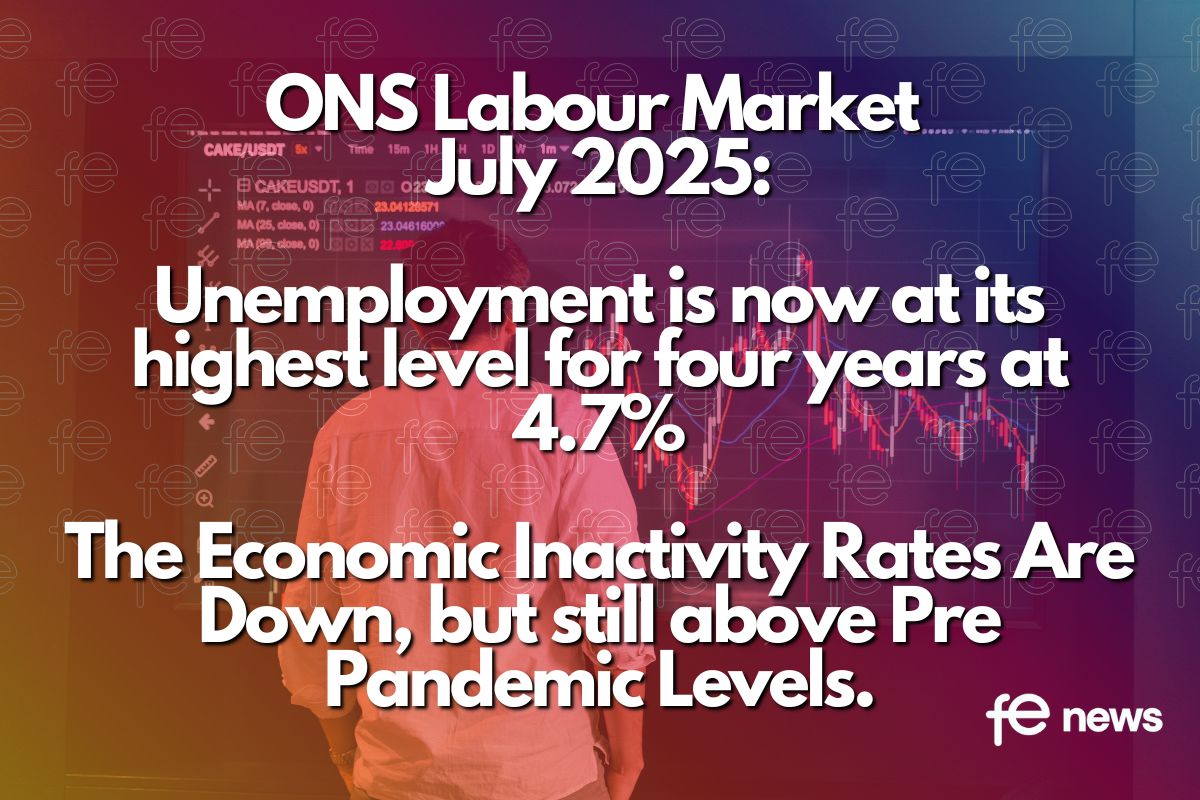Budget succeeds in boosting employment but leaves household incomes stagnant, as citizens pay higher taxes to see many services cut

The Chancellor announced an impressively broad suite of policies to encourage more people into work, but Britain’s economy remains stuck in a deep funk – with people supported into work but getting poorer, and paying more tax but seeing public services cut, the Resolution Foundation said today (Thursday) in its overnight analysis.
The Foundation’s Budget analysis report – We’re going on a growth Hunt – examines the economic backdrop to Budget 2023, and assesses whether the Chancellor has successfully delivered on his central objective of boosting growth through higher employment and business investment.
Highlights of the overnight analysis include:
- Defying the odds on a downturn…. The UK is forecast to have gone through the biggest energy and inflation shock since the 1970s, while avoiding a recession, and with unemployment peaking at just 4.4 per cent. In contrast, the mid-1970s energy shock was accompanied by a recession with a 3.9 per cent peak-to-trough fall in GDP.
…but a disastrous decade for living standards. Typical real household disposable incomes are on track to remain lower by the end of the forecast (2027-28) than they were before the pandemic (2019-20). If even the slow growth of the past decade had continued, incomes would still be £1,800 higher than currently projected for 2027-28.
Taxing times for all. Taxes as a share of GDP are on track to hit a 70-year high of 37.7 per cent by 2027-28 – a 4.7 percentage point increase since 2019-20, equivalent to nearly an extra £4,200 for every household in the UK. Despite this, the Chancellor only has a quarter of the average fiscal headroom of the last three Chancellors, and wouldn’t meet the fiscal targets set by Chancellors Sunak, Hammond or Osborne.
Much needed help for parents… The Chancellor announced the biggest increase in childcare support on record. As well as encouraging more parents to work it will make it worthwhile for many to work longer. Under the current childcare system, a single parent of a one-year-old earning the National Living Wage would see their income fall after childcare costs by £370 if they moved from 25 to 35 hours of work a week.
However, under the new system, the same single parent would receive an income boost of £700. Overall, the richest fifth of households are set to gain £180 on average from the extra childcare entitlement, compared to £130 for the middle fifth of households, and £20 for the bottom fifth. …but an unneeded tax break for wealthy pension savers.
Raising the annual, and scrapping the lifetime, allowances for tax-free pension saving cost around £1.2 billion and are expected to increase employment by 15,000 – a cost of around £80,000 per extra worker. And even those employment gains may be overstated, given that giving very large wealth boosts will actually encourage some people to retire earlier than they otherwise would have done (someone with a £2 million pension pot has just received a tax cut of almost £250,000).
Austerity returns… The Chancellor chose largely to ignore pressures on public services in this Budget, but unprotected departments face 10 per cent cuts to real day-to-day spending per capita by 2027-28 – rising to 14 per cent if the newly announced aspiration for Defence spending to rise to 2.5 per cent of GDP is met over the next parliament. …and the investment roller-coaster continues. The £28 billion three-year increase in investment allowances represents the fifth major corporate tax change in just two years – illustrating the lack of certainty that has frustrated businesses. The policy will deliver a temporary 3 per cent boost to investment, when what Britain actually needs is a permanent 30 per cent boost to catch up with our competitors (France, Germany and the US).
Torsten Bell, Chief Executive of the Resolution Foundation, said:
“Jeremy Hunt’s first Budget was a much bigger affair than many expected, combining improvements to the dire economic and fiscal outlook with a significant policy package aimed at boosting longer-term growth in general, and the size of the workforce in particular. A step change in childcare support stands out.
“But stepping back the UK’s underlying challenges remain largely unchanged. We are investing too little and growing too slowly. Our citizens’ living standards are stagnant. We ask them to pay higher taxes, while cutting public services. No one Budget could turn that around, but it’s time Britain did.”
Initial Analysis:
Faced with an economic outlook that has improved in the short term but remains weak, the Chancellor today (Wednesday) delivered a major policy package that is likely to be more successful at getting Britain working than investing, the Resolution Foundation said in its response to Budget 2023.
Following energy price falls, the OBR has significantly upgraded its short-term economic outlook. The UK is set to avoid a technical recession in 2023, and see the sharpest one year fall in inflation since the 1970s.
Forecast changes reduce borrowing by £24.8 billion this year, and by nearly £120 billion cumulatively over the five years to 2026-27.
The Chancellor has chosen to spend an average of just under two-thirds of his forecast improvements on policy measures from next year onwards – on cost-of-living support for households and investment incentives for firms in the short term, and measures to boost activity rates in the longer term.
Measures to boost employment include the welcome extension of 30 hours free childcare to children of working parents from nine months old. This will provide a significant income boost for parents when childcare costs are highest – average childcare costs for working parents with children aged 1-2 are nearly four times higher than those with children aged 5-11 – encouraging more mothers to work, or work more hours.
Increases to the annual, and abolition of the lifetime, tax-free allowances for pension savings are a significant giveaway to higher earners who already benefit most from our approach to pension tax relief. The OBR forecasts that these two measures will increase employment by 15,000, at a cost of around £47,000 per job. A tax giveaway this big may actually see some workers choosing to retire early, or using their now uncapped pensions saving to avoid inheritance tax.
These carrots of financial support for better-off parents and those with huge pensions will largely benefit middle-and-higher income households, with two-thirds (67 per cent) of the new support going to the richest half of households, while the poorest fifth get just 6 per cent. The Chancellor also announced sticks to push more people into work, with increased benefit conditionality for poorer parents and couples where only one partner currently works.
The scrapping of the Work Capability Assessment (WCA) amounts to the biggest change in disability benefits in a decade. It will rightly be implemented slowly given that there will be significant winners but also losers. Up to 650,000 people currently receiving support after going through the WCA do not receive Personal Independence Payments. In future, this group, which includes people recovering from surgery, are likely to see support cut back.
In aggregate, the OBR thinks these measures should raise the size of the workforce by 110,000 or around 0.3 per cent in 2027-28. This is welcome, but smaller than the boost to employment from higher migration of 160,000.
On business investment the Chancellor unwisely introduced yet another temporary regime for corporate taxation, with full expensing of qualifying investment over the next three years. This will encourage the biggest firms (99 per cent of firms already receive 100 per cent relief due to the £1 million Annual Investment Allowance) to bring forward investment, but not to increase it. In fact, business investment in 2027-28 is forecast to be four per cent lower than it was in the Autumn.
In the shorter term the Chancellor delayed the Energy Price Guarantee rise and scrapped the fuel duty increase, providing a £225 boost to a typical household next year. These are small measures compared to pre-existing measures to support households with rising energy bills, with support totalling £68.9bn – or £2,460 per household – over this year and next.
Even with this help, family finances will remain under strain from higher energy bills today, and tax rises tomorrow. The Foundation’s analysis shows that the permanent effects of tax and benefit changes in this parliament will boost the incomes of poorest fifth of households by £444 per year, while reducing middle incomes by £694, and the richest fifth of households by £2,067 per year.
Economic growth over the parliament is forecast to be the weakest since Margaret Thatcher’s first term – at just 0.5 per cent per year. The weak growth holds back incomes, with the current parliament set to be the worst on record for living standards. Real household disposable income per person is forecast by the OBR to still be 5 per cent (£1,200 a year) lower in Q1 2025, than it was in Q4 2019.
Torsten Bell, Chief Executive at the Resolution Foundation, said:
“Against a better, but still bad, outlook for the British economy, the Chancellor has announced a more action packed Budget than many expected.
“It is likely to be more successful in boosting employment than investment, with a significant improvement to childcare support standing out. It will provide a welcome income boost for families at a time when childcare costs are at their highest, while also encouraging more parents to work, or work more hours.
“However, tax changes to discourage early retirement – an issue that looks to have largely disappeared after the mid-pandemic surge – are hugely regressive and wasteful. It’s a big victory for NHS consultants but poor value for money for Britain.
“Announcing yet more temporary arrangements for corporate taxes is unwise, contributing to ongoing uncertainty and doing nothing to permanently raise the levels of business investment in the UK.
“Today we got a better sense of the Chancellor’s growth strategy – a mix of carrots and sticks to help people to work more, but not enough of an investment-led productivity drive to help those workers earn more.”











Responses